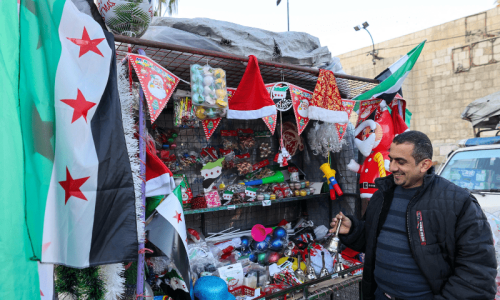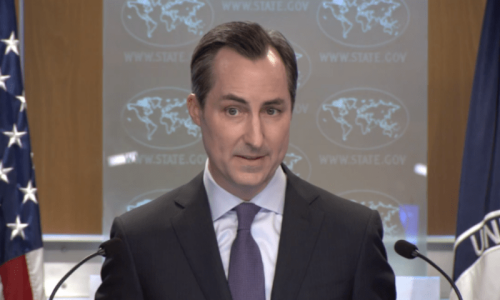
LAGOS: Violence that erupted largely between Christians and Muslims in Nigeria after President Goodluck Jonathan won last month's vote left at least 800 people dead, Human Rights Watch said Monday.
The unrest exploded in the northern mainly Muslim part of the country after Jonathan, a Christian from the south, won the April 16 elections, gripping the area for three days with churches, mosques and houses set ablaze.
“Deadly election-related and communal violence in northern Nigeria following the April 2011 presidential voting left more than 800 people dead,” Human Rights Watch said in a statement.
“The victims were killed in three days of rioting in 12 northern states”. The New York-based rights group said.
Nigerian authorities have refused to give a toll for the violence, which started as results came in showing Jonathan was running ahead of opposition politician Muhammadu Buhari, a Muslim from the north.
A local rights group had estimated that more than 500 were killed while the Red Cross said some 74,000 had fled their homes to escape.
“The presidential election divided the country along ethnic and religious lines,” Human Rights Watch said.
The “rioting quickly degenerated into sectarian and ethnic bloodletting across the northern states,” it said.
“Muslim rioters targeted and killed Christians and members of ethnic groups from southern Nigeria burning their churches, shops and homes.
“In predominantly Christian communities in Kaduna State, mobs of Christians retaliated by killing Muslims and burning their mosques and properties”. Nigeria's population of 150 million is roughly divided in half between Muslims and Christians and includes some 250 ethnic groups. The north is mainly Muslim while the south is predominately Christian.
The election was judged both at home and abroad as “among the fairest in Nigeria's history, but they also were among the bloodiest,” said HRW senior West Africa researcher, Corinne Dufka.
The watchdog urged Nigeria to investigate the killings and prosecute perpetrators of the violence.
Jonathan last week inaugurated a 22-member panel to examine the unrest as well as pre-election violence. It is headed by a prominent Muslim. The panel is also to find out how many people were killed and hurt, and the sources of the weapons used during the unrest.
“The newly elected authorities should quickly build on the democratic gains from the elections by bringing to justice those who orchestrated these horrific crimes and addressing the root causes of the violence,” Dufka said.
Some in Nigeria have accused allies of Buhari, a former military ruler, of instigating the riots although he has disassociated himself from the violence while also alleging rigging.
The majority of the deaths, at least 500, were reportedly recorded in the predominantly Christian towns and villages of Zonkwa, Kafanchan and Matsirga, Christian and Muslim leaders told HRW.
Most of the dead in the area were Muslim, it said.
At least 180 others were killed in Kaduna city and the university town of Zaria and environs, according to HRW estimates.
Among the killings that have drawn the most outrage were those of 10 recent college graduates on their mandatory post university national service who were deployed on election duty.
HRW also said the police and the military were implicated because they allegedly used excessive force while trying to quell the unrest.
Jonathan was declared the winner of the election with 57 per cent of the ballots, easily beating Buhari's 31 per cent.













































Dear visitor, the comments section is undergoing an overhaul and will return soon.